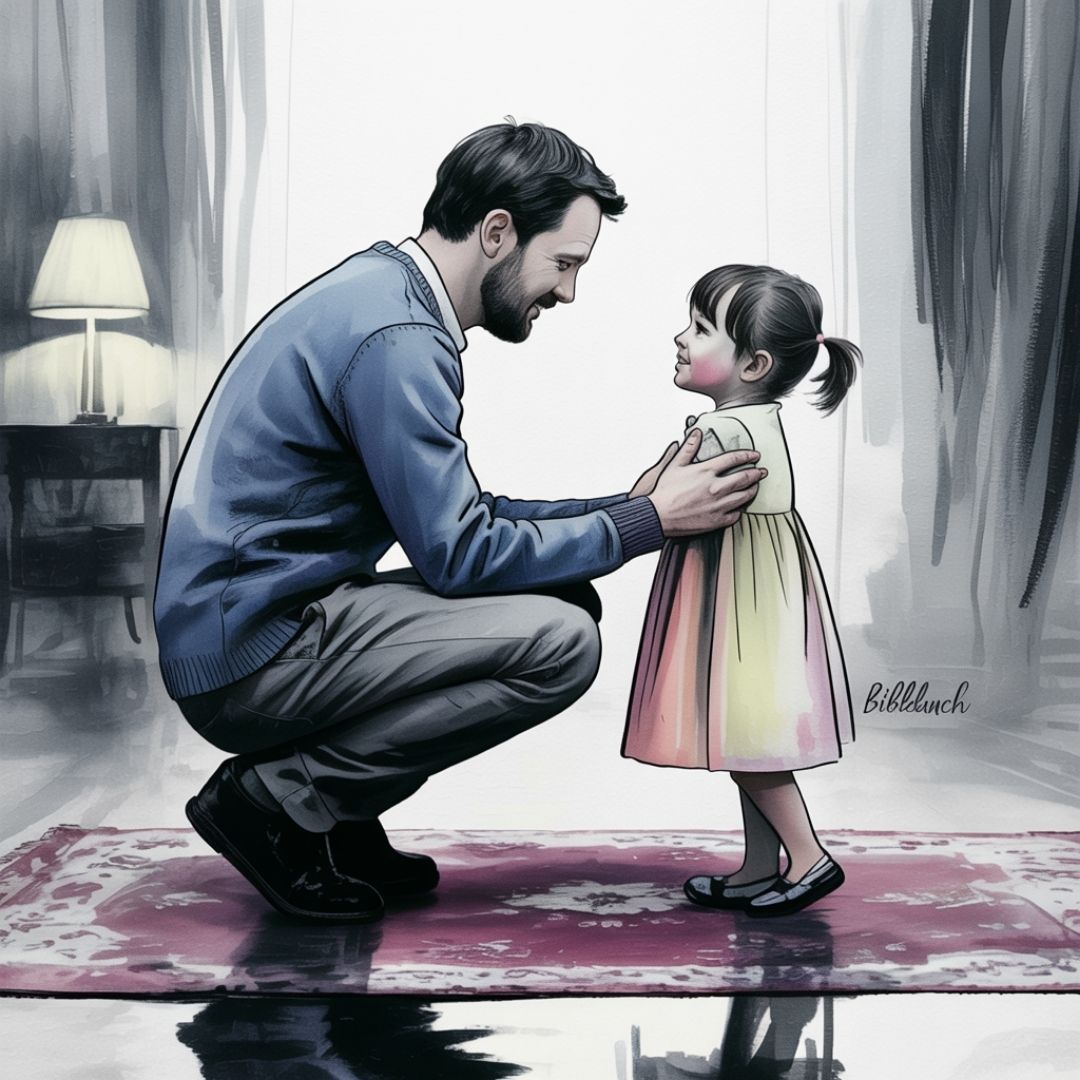“He does not punish us for all our sins; he does not deal harshly with us, as we deserve. For his unfailing love toward those who fear him is as great as the height of the heavens above the earth.”
(Psalm 103:10–11, NLT)
Every parent knows the sinking feeling: the crash of a dropped glass, a sibling squabble gone too far, or the heavy silence after a child’s lie is discovered. Mistakes—small and big—are part of every family’s story. For most of us, our first reaction is to correct, discipline, or even scold.
But what if these moments could become the best discipleship opportunities you have?
What if the kitchen mess, the broken trust, or the angry words could point your child to the heart of the gospel—grace?
This post will show you how to turn everyday failures into lasting faith, how to teach your children that God’s love is bigger than their worst mistake, and why a grace-based home shapes the next generation of resilient, Christlike adults.
1. Grace at the Heart of the Gospel
The message of Jesus is not “Do better, try harder.”
It’s “Come as you are. Receive what you could never earn.”
We see this in every encounter Jesus had with the broken, the flawed, the outcast.
- The prodigal son returns in rags, and the father runs to meet him.
- Peter denies Jesus three times, but Jesus welcomes him back with breakfast and a mission.
- The woman caught in adultery faces condemnation, but Jesus says, “Neither do I condemn you. Go and sin no more.”
If our homes do not become places where mistakes lead to grace, then the gospel message remains theoretical.
If our discipline is all about shame or consequences, our kids may learn to hide rather than to trust and confess.
2. What Research Shows About Grace and Growth
Research on child development and faith confirms what the Bible teaches:
- Children who experience empathy and forgiveness from parents are less likely to lie, hide, or rebel in the long run (Barna, Guiding Children, 2019).
- Shame-based discipline (focusing on what’s wrong with the child, not just the behavior) leads to greater anxiety and less healthy risk-taking—children become afraid of failure.
- Homes that practice regular confession and forgiveness—where parents admit their own mistakes and ask for forgiveness—produce children with higher resilience, stronger faith retention, and more empathy for others.
Grace does not mean “no consequences.”
It means that love, relationship, and hope are always offered—even after failure.
3. A Biblical Model for Handling Mistakes
a) Acknowledge the Truth—Without Shame
When a mistake happens, name it honestly:
“Breaking your sister’s toy was wrong. Let’s talk about what happened.”
Separate the behavior from your child’s identity:
“This choice was not like you. God made you to be kind and gentle.”
b) Invite Honest Confession
Let your child know it’s safe to tell the truth—even about hard things.
“Is there anything else you want to share?”
Share your own stories of failure (age-appropriately), modeling humility:
“I remember losing my temper with Grandma when I was your age. I needed to say sorry, too.”
c) Speak Grace
Affirm God’s forgiveness:
“We all mess up. That’s why Jesus came—to forgive and help us start again.”
Pray together, thanking God for new beginnings.
d) Restore Relationship
After discipline or apology, do something together to reconnect: a hug, reading a book, or sharing a snack. Show that love is steady, not dependent on perfection.
4. Ancient Practices: Confession, Grace, and Restoration
In both ancient Jewish and Christian tradition, confession and restoration were not just for “big sins,” but woven into daily life:
- Jewish households practiced regular prayers of repentance at bedtime: “I forgive anyone who angered or wronged me… May no one be punished on my account.”
- The early church (James 5:16, NLT): “Confess your sins to each other and pray for each other so that you may be healed.”
- Rabbinic teaching: Disciples learned by watching their teachers confess faults, seek forgiveness, and quickly restore fellowship.
Modern families can reclaim this rhythm—where mistakes are addressed, grace is practiced, and relationship is restored.
5. Practical Steps for Parents
a) Slow Down Your Response
When a mistake happens, resist the urge to react immediately.
Pause, breathe, and remember your goal: not just to punish, but to disciple.
A gentle, calm presence opens the door to heart change.
b) Ask Good Questions
- “What happened? How were you feeling?”
- “What can we do to make things right?”
- “What do you think Jesus would say to you right now?”
Let your child process, rather than just hear a lecture.
c) Name the Grace
Speak these truths aloud:
- “I love you, no matter what.”
- “God’s forgiveness is always bigger than our mistakes.”
- “You are not alone; everyone needs a fresh start sometimes.”
d) Model Apologies
Let your kids hear you say:
“I was impatient. Will you forgive me?”
You are showing them that grace isn’t just for kids—it’s for everyone.
e) Create Visible Reminders
Try the Grace Jar activity:
Every time someone is forgiven or shows grace, write it on a slip of paper and drop it in the jar.
At week’s end, read a few together and thank God for His kindness in your home.
6. What About Consequences?
Grace does not mean “no rules.”
It means consequences are given with love, not anger. The goal is restoration, not retribution.
Example:
“If you broke your brother’s toy, you’ll need to help fix it or do a chore to help pay for a new one. But I’ll be here to help you, and we’ll work through it together.”
Research shows that consequences are most effective when paired with emotional support and clear affirmation of love.
7. Teaching Grace for a Lifetime
Children who experience grace at home are more likely to:
- Admit their failures and seek help in the future
- Show empathy to others
- Keep their hearts open to God, even when they stumble as adults
As Paul wrote,
“So now there is no condemnation for those who belong to Christ Jesus.” (Romans 8:1, NLT)
Imagine if your child’s deepest memory of home was not just “I got in trouble,” but “I found love and hope—even when I messed up.”
9. Encouragement for Parents
You will not always get this right. Sometimes you’ll react with impatience or disappointment.
But every day is a new opportunity to show your child that love and forgiveness are stronger than failure.
Remember:
- You are not alone. God gives parents fresh grace, too.
- Perfection isn’t the goal. Faithfulness is.
- Mistakes are not the end—they are often the beginning of deeper trust and connection.
10. Quick Start Checklist
- Next time your child makes a mistake, pause before reacting.
- Invite honest confession and share a story from your own life.
- Affirm God’s grace and your steady love.
- Restore relationship with a simple act of kindness.
- Start a “Grace Jar” as a family tradition.
Conclusion
Mistakes will happen—every day, in every home.
But when you choose to disciple through grace, you reflect the heart of Jesus:
Love that covers, forgives, restores, and transforms.
“The faithful love of the Lord never ends! His mercies never cease. Great is his faithfulness; his mercies begin afresh each morning.”
(Lamentations 3:22–23, NLT)
Let your home be a living example of this mercy.
Your child’s mistakes are not just messes to clean up—they’re seeds for a faith that lasts a lifetime.





